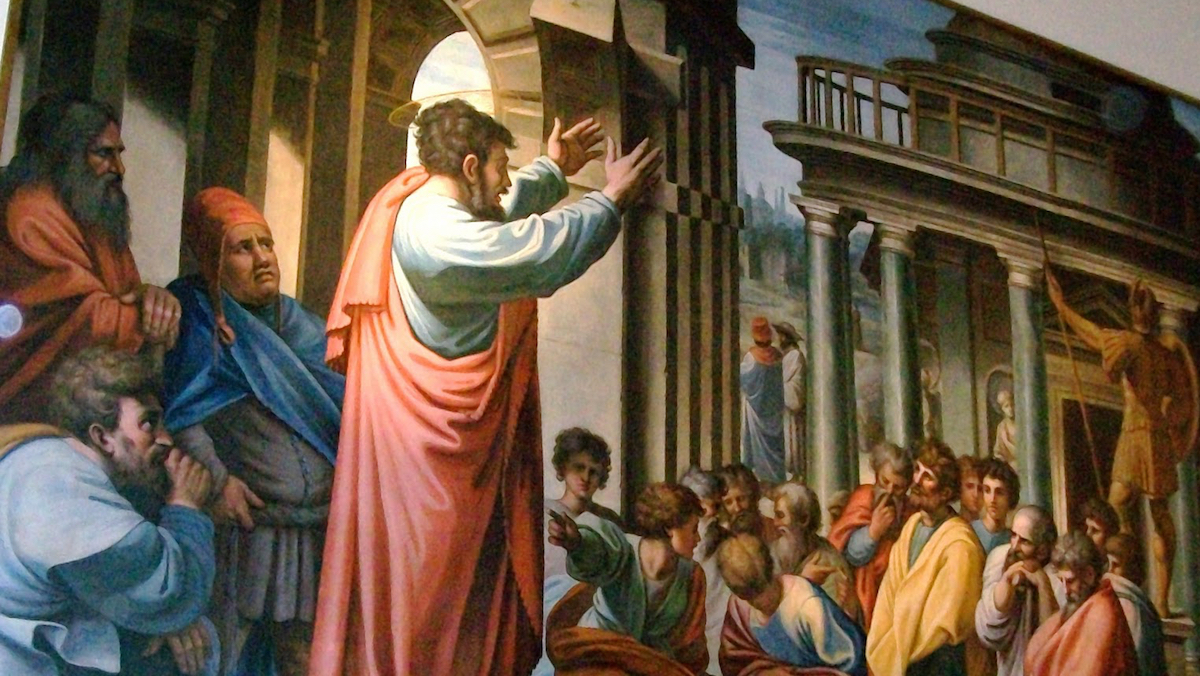Did you ever catch yourself saying, “I wish I could feel Christ’s encouraging hand on my shoulder. I wonder why he doesn’t let me know his presence like he used to. Now, He seems so far away. Why?” We’re inclined to blame ourselves for not “praying enough” or not doing it the right way — whatever that means.
We forget that Christ felt this way. Loneliness is not willed by God; this just happens because of our human nature. Christ longed for his Father’s presence but didn’t always receive it either because of his human nature. The temptation in the desert, the garden and the cross illustrate this. There were other times too — the rejection of the Scribes and Pharisees and when people walked away. Only twice in Scripture are we told that Christ heard the Father’s affirmation of him.
Yet, Christ chose to live in the Father’s presence and to stay open to the touch of the Spirit. We know this choice because Scripture tells of the many times he went apart simply to be with his Father. He had to do this so he could remain faithful to his commitment to bring Divine Love to earth. Equipped with this faith, he went about doing good and helping others to feel good about themselves in his presence. Christ never compromised the pledge he made to the Father and the Spirit. He’d remain faithful to them and to us, no matter what the cost.
Faithful love was Christ’s driving force. I’m sure he wanted to give up many times. Yet, “he went out to pray” regularly, even in his most trying times. He “suited up and showed up.” Too often, we glamorize Christ’s time alone in the mountains, by the lake or in the wilderness. We imagine him as on a holy card, kneeling, facing heavenward, hands together, garments perfect, having an ecstatic expression, hair and beard perfectly combed and in perfect natural surroundings with a strong ray of heavenly light penetrating him.
This is more fiction than fact. That’s why we’re too often tempted not to “suit up and show up” for time with him. We know that the holy card image doesn’t describe our time in prayer. This becomes an excuse to beg off.
On a sports team, when a player doesn’t get called to play, he might think that the time spent in suiting up and showing up was wasted. It wasn’t: if the player’s there, attentive and willing to absorb something from the experience, even if not given recognition from the coach, the experience of being present provided a benefit far beyond any felt satisfaction. The player was simply there and was open; the coach knew it, and this fact paved the way for further sharing.
When we merely “suit up and show up,” for time with Christ, it’s similar to what he did with his Father and the Spirit. Christ, our coach, knows we’re there and he does the rest. Even though we never experience any personal fulfillment, his gift to us as a result of this time is a deepening of our shared life. Faithful love becomes our driving force, too.
The word “prayer” is often used freely and without distinction of meaning. Let’s take three words based on that one to help us better understand it: pray (as in Christ’s “pray always”) means we try to live in mutual awareness of presence in love, Christ’s to me, I to him; to pray refers to the specific time or times to be still, to reflect on our goals in life and to talk these over with Christ; prayers are words we think or say, which express the above two concepts and make them doable. These can be formal or informal, with others or not; the balance is important. We need all forms as we “suit up and show up” for our life changing encounters with Christ.
There’s no one right way. Since God created an infinite number of people, he must enjoy infinite ways of communicating with him. This is one time that each of us can sing: “I do it my way!” As long as we do it with faithful love.








